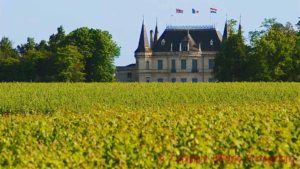
White AOP Médoc soon to be (maybe)
Once upon a time, quite a lot of white wine was made in Médoc. Then it was banned. Or, to be more precise, the eight appellations of the Médoc Peninsula can only be used for

Once upon a time, quite a lot of white wine was made in Médoc. Then it was banned. Or, to be more precise, the eight appellations of the Médoc Peninsula can only be used for
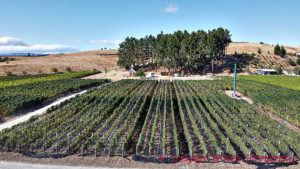
The EU is a significant export market for New Zealand wine. Over 20 million litres of wine have been exported here to a value of over 150 million USD in the last 12 months. And
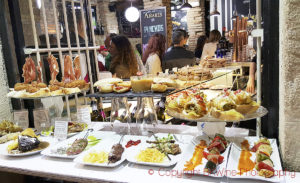
Sherry is back in fashion. Perhaps. In any case, many are trying hard to breathe new life into this old venerable wine. When the sherry region modernised its rules in 2021, it received some attention.
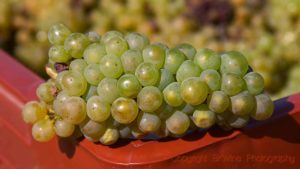
New grape varieties are regularly approved in France. First, they are preliminarily approved for a few years and then they are entered in the official French grape vine catalogue. Recently, these 8 grapes were enrolled,

Super-Tuscan is still a much-used denomination. The first producers of these rebel wines have recently founded an association, the Comitato Historical Super Tuscans. The members are 16 in total. They have all produced a famous
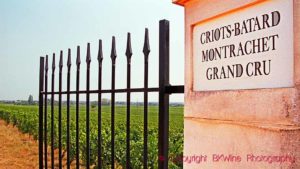
I recently read that wine investors are buying a lot of wine at the moment. They fear that the specific character of various wines will soon be a thing of the past, that new weather
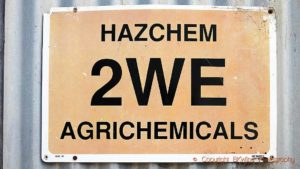
A colleague in the industry that I spoke to the other day said when we discussed spraying the vineyards, “Can’t they just ban everything dangerous?” Yes, that sounds like a good idea, in theory. But
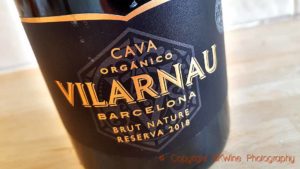
The DO Cava appellation in Spain has decided that from 2025, organic certification will be mandatory for cavas de guarda superior, the higher quality of cava. This category includes cavas reserva (with at least 18
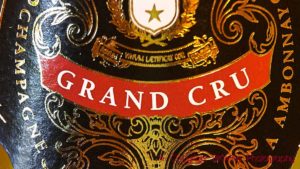
The story of Champagne’s price-fixing “l’échelle des crus” system and how it was abolished Grand cru and premier cru are famous words. You see them on many champagne bottles. Probably, most people take it as
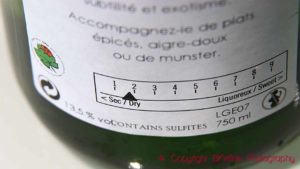
Buying Alsace wines has so far been something of a gamble if you do not already know the wine or the producer. Now, things will be easier. It is henceforth mandatory to indicate on the
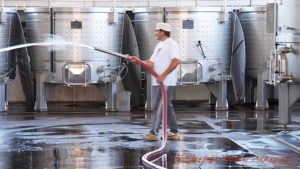
The EU has long had restrictive regulations regarding de-alcoholising wines. This is about to change. Non-alcoholic (de-alcoholised) “wines” will probably soon be allowed to call themselves wine. And they will be allowed to keep their

The producers of Provence are ready to try new grape varieties that are more resistant to drought and disease. By 2022, several new ones will probably be allowed in limited quantities. One of them is
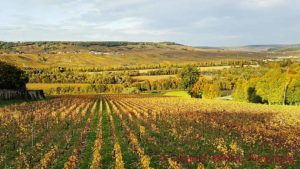
The Growers’ Association (Syndicat Général des Vignerons, SGV) in Champagne decided on July 29 to allow vineyards with lower planting density from 2023. Today it is mandatory to have at most 1.50 meters between the
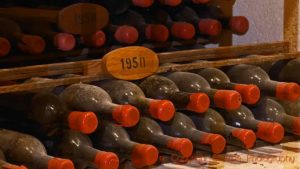
Classification of wine estates is notoriously tricky. (And of debatable or no value to consumers.) In 2022, Saint Emilion will update its classification, and the drama has already started. When the application for participation in
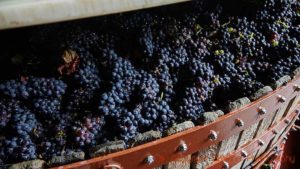
In July every year, the houses and growers in Champagne agree on the year’s harvest yield. A curious regulation in this region. In 2021, it will be 10,000 kilos per hectare (approx. 64 hl/ha). The
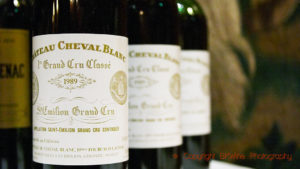
Saint Emilion is updating its classification. But Chateau Cheval Blanc and Chateau Ausone no longer want to be part of it, which is fine. It is voluntary to take part in the new update (scheduled

France’s vibrant café and restaurant life has begun to return to normal. The outdoor cafes opened on May 19, and on June 9, we are also allowed to sit inside. The French are happy. According
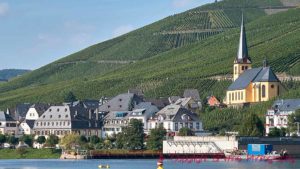
Germany introduces a wine hierarchy based on geography Germany has introduced a new “classification” system for its wines, under the name Qualitätswein. It creates a hierarchy of wines – Area, Region, Village and Vineyard –
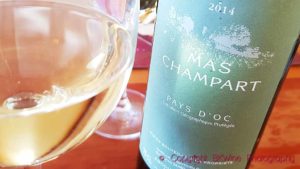
In 2009 the EU implemented a wine reform that structured wine in a few different groups. The intention was, and is, to harmonise the different systems that exist in the member countries. How this has
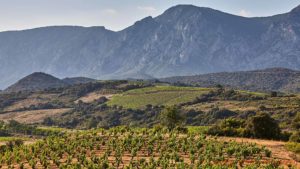
Making wine environmentally friendly is seen by many today as a matter of course. However, the extent to which producers are involved in the environment varies, not least depending on their financial situation. Sustainable viticulture

No, your Bordeaux wine will not soon be made from other grape varieties, as some headlines have implied. Last year, producers in Bordeaux approved a proposal to experiment with grape varieties that have never been

This is a book review of a Swedish book called ”Så roligt ska vi inte ha det – En historia om svensk alkoholpolitik” which translates as in the heading. Why publish a review of a
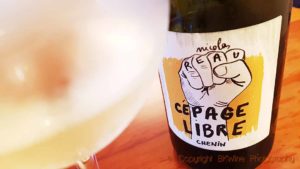
There has been a lot of writing about “vin méthode nature”, the natural wine method, a new phenomenon in the French natural wine world. This has sometimes been affected by misconceptions or ambiguities, so here
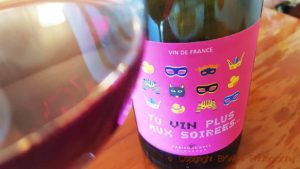
What is natural wine? Are there rules? Is it good or weird? The concept of natural wine has emerged in recent years. It has been covered in media and bated. Many people have never drunk
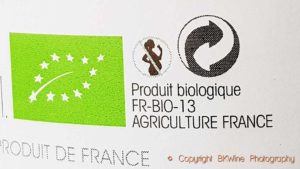
Demand for organic wine is increasing in France and also in Bordeaux. Wine merchants in Bordeaux have a hard time finding enough organic wine to meet demand. Bernard Farges, chairman of the Bordeaux producers’ organisation
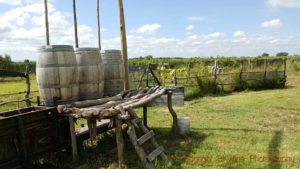
Being biodynamic is not the same as being organic, even though they have many things in common. Only a tiny proportion of organic growers are also biodynamic. But their number is growing. If you want
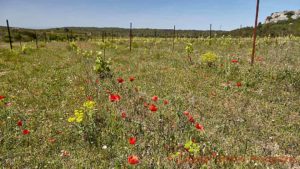
Organic wine is becoming increasingly popular. Many consumers look for it and many producers convert to become organic. But what is it really, organic wine? On this web conference video masterclass we explain what it
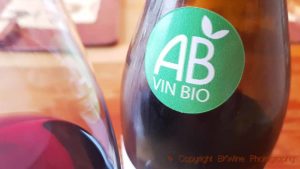
Although organic farming is increasing, it is still what we call conventional agriculture that dominates, where you can use synthetic chemical products. Therefore, organic producers need to be able to prove that they work organically
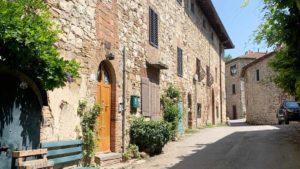
Chianti Classico is moving towards a regional sub-division similar to what has already been done in Barolo and Barbaresco. The goal is that the wine region’s eight municipalities should be allowed on the label at
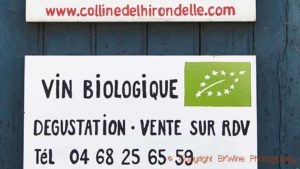
We often hear organic wine growers saying that the organic way of thinking should continue in the cellar. But what does that mean? The rules for organic wine in the cellar has to do with

Once upon a time, quite a lot of white wine was made in Médoc. Then it was banned. Or, to be more precise, the eight

The EU is a significant export market for New Zealand wine. Over 20 million litres of wine have been exported here to a value of

Sherry is back in fashion. Perhaps. In any case, many are trying hard to breathe new life into this old venerable wine. When the sherry

New grape varieties are regularly approved in France. First, they are preliminarily approved for a few years and then they are entered in the official

Super-Tuscan is still a much-used denomination. The first producers of these rebel wines have recently founded an association, the Comitato Historical Super Tuscans. The members

I recently read that wine investors are buying a lot of wine at the moment. They fear that the specific character of various wines will

A colleague in the industry that I spoke to the other day said when we discussed spraying the vineyards, “Can’t they just ban everything dangerous?”

The DO Cava appellation in Spain has decided that from 2025, organic certification will be mandatory for cavas de guarda superior, the higher quality of

The story of Champagne’s price-fixing “l’échelle des crus” system and how it was abolished Grand cru and premier cru are famous words. You see them

Buying Alsace wines has so far been something of a gamble if you do not already know the wine or the producer. Now, things will

The EU has long had restrictive regulations regarding de-alcoholising wines. This is about to change. Non-alcoholic (de-alcoholised) “wines” will probably soon be allowed to call

The producers of Provence are ready to try new grape varieties that are more resistant to drought and disease. By 2022, several new ones will

The Growers’ Association (Syndicat Général des Vignerons, SGV) in Champagne decided on July 29 to allow vineyards with lower planting density from 2023. Today it

Classification of wine estates is notoriously tricky. (And of debatable or no value to consumers.) In 2022, Saint Emilion will update its classification, and the

In July every year, the houses and growers in Champagne agree on the year’s harvest yield. A curious regulation in this region. In 2021, it

Saint Emilion is updating its classification. But Chateau Cheval Blanc and Chateau Ausone no longer want to be part of it, which is fine. It

France’s vibrant café and restaurant life has begun to return to normal. The outdoor cafes opened on May 19, and on June 9, we are

Germany introduces a wine hierarchy based on geography Germany has introduced a new “classification” system for its wines, under the name Qualitätswein. It creates a

In 2009 the EU implemented a wine reform that structured wine in a few different groups. The intention was, and is, to harmonise the different

Making wine environmentally friendly is seen by many today as a matter of course. However, the extent to which producers are involved in the environment

No, your Bordeaux wine will not soon be made from other grape varieties, as some headlines have implied. Last year, producers in Bordeaux approved a

This is a book review of a Swedish book called ”Så roligt ska vi inte ha det – En historia om svensk alkoholpolitik” which translates

There has been a lot of writing about “vin méthode nature”, the natural wine method, a new phenomenon in the French natural wine world. This

What is natural wine? Are there rules? Is it good or weird? The concept of natural wine has emerged in recent years. It has been

Demand for organic wine is increasing in France and also in Bordeaux. Wine merchants in Bordeaux have a hard time finding enough organic wine to

Being biodynamic is not the same as being organic, even though they have many things in common. Only a tiny proportion of organic growers are

Organic wine is becoming increasingly popular. Many consumers look for it and many producers convert to become organic. But what is it really, organic wine?

Although organic farming is increasing, it is still what we call conventional agriculture that dominates, where you can use synthetic chemical products. Therefore, organic producers

Chianti Classico is moving towards a regional sub-division similar to what has already been done in Barolo and Barbaresco. The goal is that the wine

We often hear organic wine growers saying that the organic way of thinking should continue in the cellar. But what does that mean? The rules
Newsletter:
Get our free monthly newsletter, the BKWine Brief and join 25,000 other wine and travel enthusiasts.
Text and images may not be used without our permission. More info on copyright.